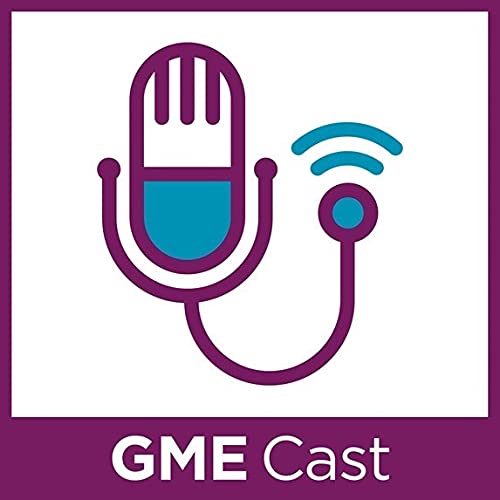Podcast Title: Healthcare Disparities II: Medical Education
Brief Summary: Please join Dr. Tracey Conti as interviewed by Dr. Julie McCausland as Dr. Conti speaks to the challenges in improving diversity and inclusion (D&I) at the individual program level in graduate medical education at UPMC. System and program level approaches are discussed, and efforts towards meaningful change in medical education are reflected upon. Those interested in the role physicians can play to address healthcare disparities through advocating for a holistic approach to D&I in medical education will be inspired by Dr. Conti's interview.
Learning Objectives:
- Recognize the impact of the recent Pittsburgh Report on Disparities for individual physicians and health care systems
- List programmatic efforts that can diversify graduate medical education at UPMC.
- Demonstrate awareness of UPMC GME efforts to diversify GME
Speakers:
- Tracey Conti, MD, Vice Chair and Assistant Professor, University of Pittsburgh School of Medicine, Program Director, Family Medicine Residency, UPMC McKeesport, Adjunct Clinical Associate Professor, Lake Erie College of Osteopathic Medicine, Pittsburgh, PA
-Julie McCausland, MD, MS, Associate Professor of Emergency Medicine and Medicine, Program Director, Transitional Year Residency Program, Co-Chair, UPMC GME Professional Development Subcommittee, University of Pittsburgh Medical Center, Pittsburgh, PA
Course Directors:
-Greg Bump, MD, Associate Dean, UPMC GME, Designated Institutional Official (DIO), Associate Professor, Internal Medicine, University of Pittsburgh Medical Center, Pittsburgh, PA
-Melinda Hamilton, MD, MS, Associate Professor of Critical Care Medicine and Pediatrics, Program Director Pediatric Critical Care Medicine Fellowship, Co-Chair, UPMC GME Professional Development Subcommittee, University of Pittsburgh Medical Center, Pittsburgh, PA
-Julie McCausland, MD, MS, Associate Professor of Emergency Medicine and Medicine, Program Director, Transitional Year Residency Program, Co-Chair, UPMC GME Professional Development Subcommittee, University of Pittsburgh Medical Center, Pittsburgh, PA
Moderator:
-Julie McCausland, MD, MS, Associate Professor of Emergency Medicine and Medicine, Program Director, Transitional Year Residency Program, Co-Chair, UPMC GME Professional Development Subcommittee, University of Pittsburgh Medical Center, Pittsburgh, PA
CME Accreditation and Credit Designation
In support of improving patient care, the University of Pittsburgh is jointly accredited by the Accreditation Council for Continuing Medical Education (ACCME), the Accreditation Council for Pharmacy Education (ACPE), and the American Nurses Credentialing Center (ANCC), to provide continuing education for the healthcare team.
The University of Pittsburgh designates this enduring activity for a maximum of 0.5 AMA PRA Category 1 Credit[s]™. Physicians should claim only the credit commensurate with the extent of their participation in the activity.
No members of the planning committee, speakers, presenters, authors, content reviewers and/or anyone else in a position to control the content of this education activity have relevant financial relationships with any entity producing, marketing, re-selling, or distributing health care goods or services, used on, or consumed by, patients to disclose.
Instructions for receiving CME credit
Click here to receive CME credit,
https://cce.upmc.com/HealthcareDisparitiesIIMedicalEducation
you will be required to login and complete the course evaluation. If you are a new user, click “Register” in the top left corner to create a new account.
 Aug 17 202242 mins
Aug 17 202242 mins 18 mins
18 mins Jun 10 202226 mins
Jun 10 202226 mins Jul 28 202119 mins
Jul 28 202119 mins 23 mins
23 mins Apr 1 202117 mins
Apr 1 202117 mins 24 mins
24 mins 24 mins
24 mins
